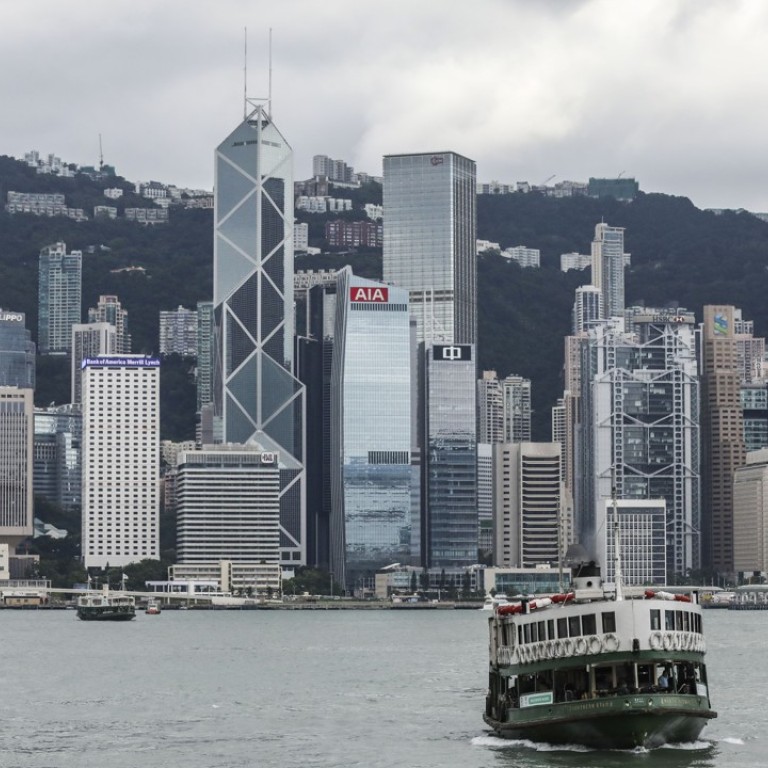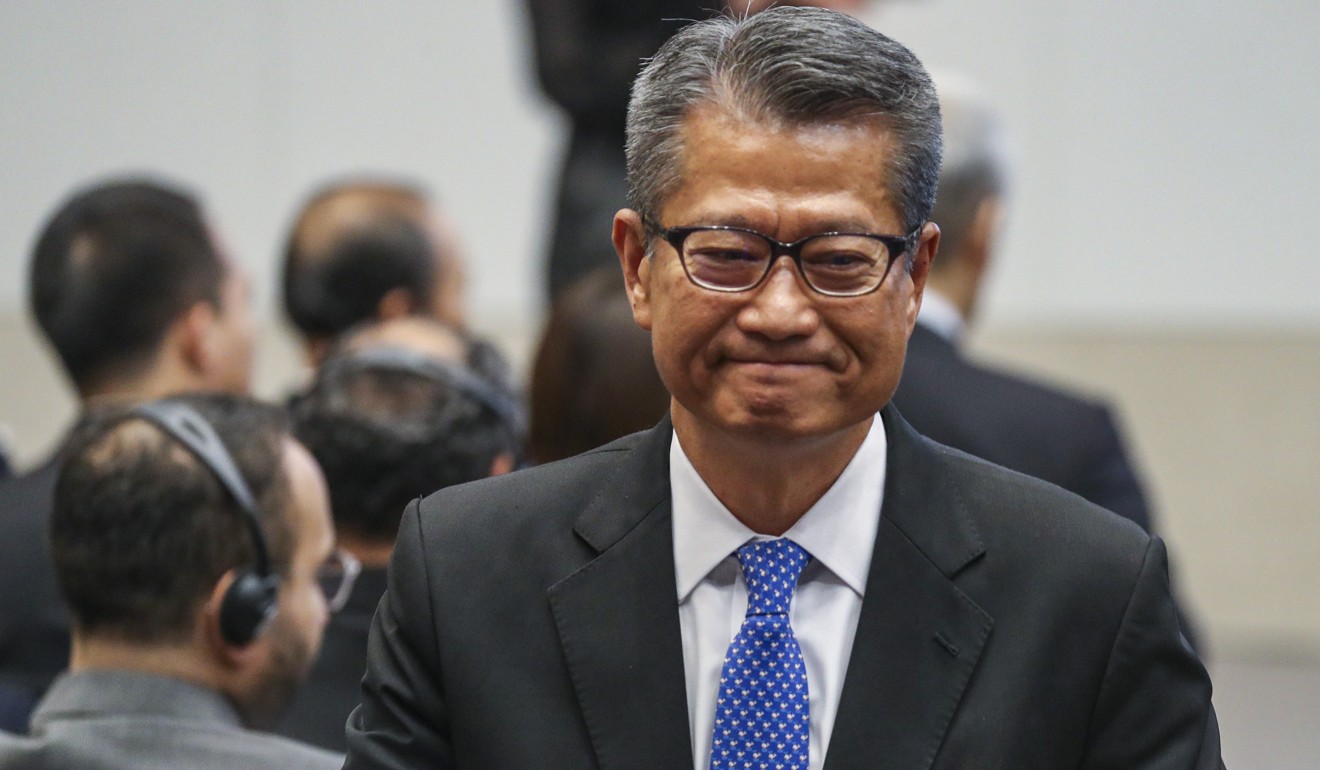
US-China trade truce offers breathing space – but there will be ‘ups and downs’, Hong Kong Financial Secretary Paul Chan warns
- Tariff ceasefire has helped ease uncertainties in Hong Kong’s financial market temporarily, finance chief says
Hong Kong Financial Secretary Paul Chan Mo-po on Monday said the 90-day trade truce agreed between the US and China gave the city’s financial market some breathing space, but he warned of volatility as the two countries negotiated a settlement.
President Xi Jinping and his US counterpart Donald Trump agreed on Saturday during the G20 summit in Buenos Aires that the two countries would hold back from applying extra tariffs in January to pave the way for a deal. The move had helped temporarily ease uncertainties in Hong Kong’s financial market, Chan said after returning from the summit.

“The truce eases anxiety and stress in the financial market temporarily,” he said. “A more stable financial market will be good for Hong Kong’s economic outlook for next year.”
Following the agreement on Saturday, Trump and Xi moved to start negotiations immediately on structural changes in such areas as technology transfers, intellectual property protection, non-tariff barriers, cyber intrusions and cyber theft, services and agriculture.
If there is no deal at the end of the 90 days, the US will raise tariffs on US$200 billion of goods from 10 per cent to the 25 per cent previously scheduled to start on January 1.
Trump says China agrees to ‘reduce and remove’ tariffs on US cars
Hong Kong’s benchmark Hang Seng Index jumped 675 points, or 2.55 per cent, to 27,182 points on Monday – a two-month high.
The Shanghai stock market jumped 2.57 per cent while Shenzhen stocks rose 3.34 per cent.
“During the negotiations, there will be ups and downs because there are not only trade disputes, but also significant differences between them [the US and China] in structural issues,” Chan said.
“For the upcoming budget, I will discuss with the business sector what relief measures they need from the government. But it is too early to say what they are now.”
The city’s biggest business chamber, the Hong Kong General Chamber of Commerce, said the 90-day truce was not long enough to work out the disputes between the two economic powers.
China, Hong Kong stocks surge over temporary truce on trade war
“There are very major issues still at stake. Trade imbalances, for one. [Intellectual property] rights are another,” chamber chairman Aron Harilela said.
“Maybe the tariffs will go up, maybe these tariffs stay. But we would like to see the tariffs completely released.”
The US treats Hong Kong as a different trading entity under the United States-Hong Kong Policy Act, which took effect after the return of sovereignty from Britain to China in 1997. The tariffs the US has slapped on mainland China do not apply to Hong Kong.
However, the city will not escape collateral damage because of its middleman role. Almost half of the Chinese goods shipped via Hong Kong to the US are affected by the tariffs. The US is Hong Kong’s second-largest trading partner.
Chan said most of the orders for the fourth quarter of this year had been completed, which meant the impact of the latest tariffs would be reflected next year.
“We are cautiously monitoring the situation,” he said. “It is premature to make a conclusion now.”
The city’s retail sector has felt the pinch of the trade war, with sales shrinking noticeably since the second half of this year. Consumption slowed faster than trade body the Hong Kong Retail Management Association had expected, to 5.9 per cent growth in November after a 29.9 per cent rise in February.
The trade war has also cast a shadow on Hong Kong’s overall economic growth, which tapered off to 2.9 per cent in the third quarter, after 3.5 per cent in the second quarter and 4.6 per cent in the first quarter.

